If you are a business located outside of Australia or an overseas legal practitioner acting for clients and looking for ways to recover judgment debts from a person or business with assets in Australia, then it is important that you carefully consider the available process for registering and enforcing foreign judgment in Australia to avoid unnecessary delays and costs.
Businesses located outside of Australia may face a situation where a person or business who owes them money may have assets in Australia. If you have already sued a person outside of Australia and obtained a judgment (the foreign judgment), it is possible to use that judgment in Australia rather than having to sue again.
The foreign judgment enforcement regime in Australia allows parties to enforce a foreign judgment debt in Australia without having to re-litigate the matter.
This can be done in three ways. First, under the Foreign Judgments Act 1991 (Cth) (FJA). Secondly, where FJA does not apply, under the common law. Thirdly, for the enforcement of judgments by Courts in New Zealand, under the Trans-Tasman Proceedings Act 2010 (Cth).
Enforcement under Foreign Judgment Act
The FJA applies only in cases where judgments have been issued by ‘superior courts’ in jurisdictions provided under the Foreign Judgment Regulations 1992 (Cth) (Regulations). Foreign creditors are able to utilise the FJA statutory regime to register and enforce final as well as interlocutory judgments provided that the judgment:
- is a money judgment;
- is final and conclusive;
- is not wholly satisfied; and
- was given by a Court specified under the Regulations.
The time for registration of a foreign judgment is 6 years from the date of the judgment or in case there has been an appeal, the date of last judgment in those proceedings.
Once registered, the registered judgment has the same force and effect as if judgment had been originally given by the Court in which it was registered. And the judgment registered will accrue interest at the applicable Court rates.



























